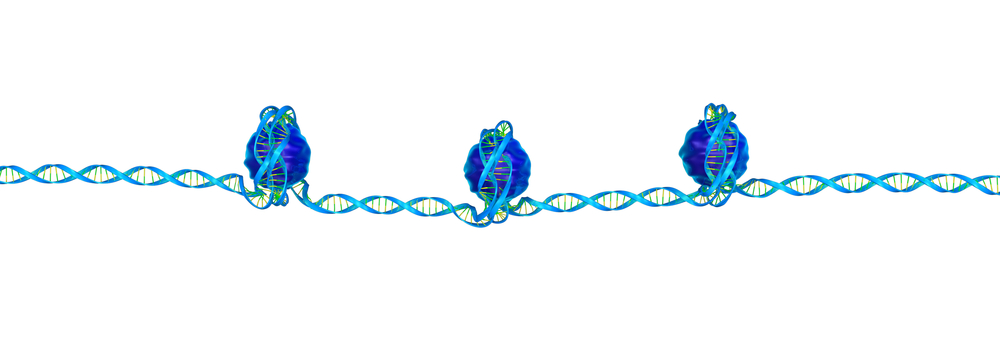Genetic Background May Determine Disease Severity in Cystic Fibrosis
Written by |

In a new study entitled “Natural Variation in Gene Expression Modulates the Severity of Mutant Phenotypes,” researchers show that disease severity in genetic disorders such as Cystic Fibrosis depends on the genetic background of individuals and not solely on the genetic defect of a particular gene. These findings establish patients’ genetic background as a determinant of disease severity and in the future will allow doctors to differentiate patients at higher risks for complications. The study was published in the journal Cell.
Genetic disorders like Cystic Fibrosis are caused by mutations, i.e., a permanent alteration within a gene sequence. Notably, two individuals inheriting the same mutation often exhibit differences in the severity of the mutation-associated phenotype. This suggests that the genetic background, i.e., the genotype of all other related genes may interact with the gene mutated gene in different ways, leading to different outcomes. However, how a patient’s genetic background changes mutant phenotypes is poorly understood, but is paramount for predicting how severe a certain disease may become in a specific patient.
RELATED: New Strategy Could Correct Genetic Mutation Responsible For Cystic Fibrosis
Professor Andy Fraser, a at the University of Toronto’s Donnelly Centre and study lead author noted, “At present we can tell little more than that someone will get a genetic disease, but cannot tell them how bad this might be. This is a bit like telling someone that they will have a car crash but not whether this will be a mild bump or a major crash. Changing this uncertainty helps patients greatly and also lets doctors focus on those likely to be most severely affected.”
In this recent study, the team of researchers at the University of Toronto in Canada performed experiments with a worm known as C. elegant, a key laboratory model organism, as explained by Dr. Fraser, “Worms are the only animals in which we could do this massive scale of experiments to investigate how genetic background affects the severity of genetic disorders.”
They found that disease severity depends on the genetic background, with 20% of approximately 1,400 genes tested C. elegans genes resulting in different in phenotypes between two different genetic backgrounds. These results were then validated in mammalian cells.
The implications of these findings for genetic diseases, including Cystic Fibrosis are critical, because it in the future it will allow clinicians to predict disease severity in a particular individual, as explained by Dr. Fraser, “Now for the first time we can begin to predict disease severity for each affected person by measuring their unique personal gene activity. We hope that this will eventually lead to new therapies aimed at turning down the severity of genetic diseases, a new way to tackle these life-threatening conditions.”






